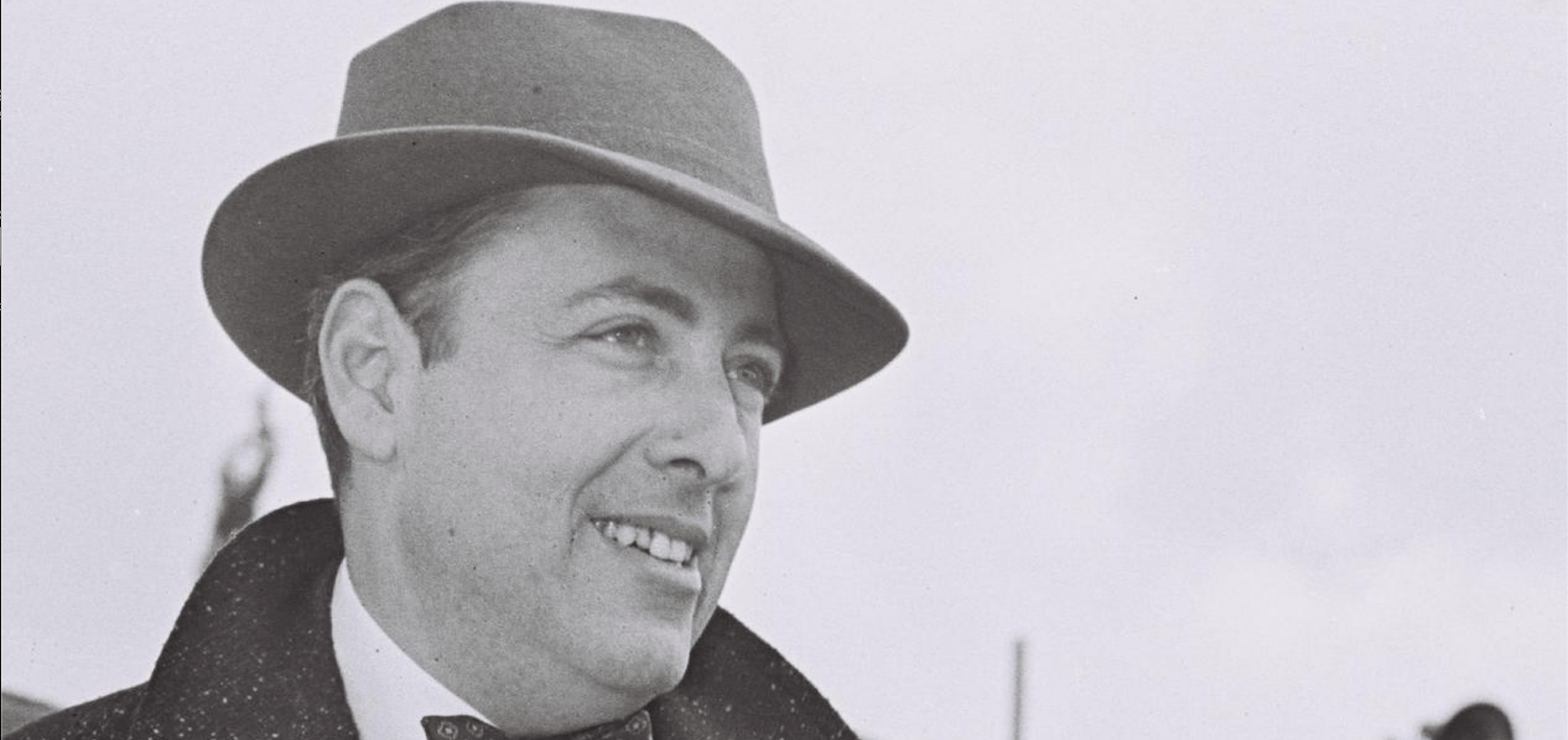
How Herman Wouk’s Orthodox Judaism Defined His Life
Pulitzer Prize-winning author Herman Wouk z”l passed away late Thursday night at almost 104 years old. The author of The Caine Mutiny, War and Rememberance and This is My God was a WWII veteran who fought in the Pacific and went on to win accolades for his writing. Rabbi Yonason Denebeim has known Wouk for 40 years and officiated at his levaya today. Denebeim relates, “His life was his Judaism. Many people make the mistake of thinking that he was [just] an author. He thought this was a gift Hashem gave him to promote greater values.”
Denebeim, the director of Chabad of Palm Springs, says that “His true passion was the Torah he studied on a daily basis.” Wouk learned Torah up until the day he died and taught it as well. “He didn’t just teach Chumash with Rashi, he taught a Gemara shiur twice a week. He was the young vibrant one teaching ‘old men’ as he called them, who were twenty years younger than him.” Among his famous students were Rabbi Maurice Lamm z”l and Rabbi Marvin Hier.
The Denebeim family and his wife’s family, the Posners of Nashville, have been close to Wouk for many years. “My Father-in-law told me [that] this friend of his was coming to Palm Springs. He said to treat him with respect because he is a yodea sefer. He knows his way in and out of learning. Give him special care.” Denebeim didn’t know what to make of the information. But then a few weeks later, someone came over in the middle of Shabbos davening. “He said, ‘The guy sitting next to me is Herman Wouk.’ I gave him an aliyah and asked him in yiddish to say a few words before Mussaf. I thought, he’s an artist, he will say something flowery, what can an author possibly speak about?” Denebeim soon learned that he was mistaken. “I knew nothing about him. He got up and darshened semichos haparshios that a rosh yeshiva would [have been delighted by].” From that point forward, Denebeim and Wouk became friends.
Wouk’s wife passed away in 2011. Despite children, grandchildren and great-grandchildren, Wouk was one of the only people left in his generation. He recently told Denebeim that “It’s very lonely at the top. All my closest friends are gone.” Wouk told Denebeim that he and General Yossi Ben Hanan were his two closest friends, and both were 30-40 years his junior. Denebeim says, “He was a surrogate father to me for 40 years.” He recalls that he had never read one of Wouk’s books and was curious after they got to know each other. “I went to visit my parents and saw some Judaica books in English. I pulled one of Wouk’s books off the shelf and saw that it was inscribed to me from my bar mitzvah.” Their connection was just waiting to happen.
Wouk inspired thousands to rekindle their connection with yiddishkeit. When a book of his was translated into Russian in 1975, “He came to the [Lubavitcher] Rebbe for Yud Shevat. He had received a brocha before the war from the previous Rebbe. His mother and grandfather were Lubavitchers. The Rebbe told him [despite his success in Russia], ‘You can’t forget your responsibility to American Jewry.'” Wouk never forgot it. “He worked and slaved to promote yiddishkeit. He was just an amazing, amazing person.”
Denebeim recounts his powerful final meeting with Wouk on the day he died. “For the past 27 years, I run an event called Ask the Rabbi where 200-300 people come. [Wouk] loved the fact that I did this. I would turn the stories from it into drashos on Shabbos.” But five years ago, Wouk had broken his foot and could no longer walk to shul on Shabbos to hear these drashos. “Every Shabbos afternoon, I would walk to his house and tell over the drasha. This past Thursday, I came back from Texas and his caregivers said he wasn’t speaking.” Denebeim needed to go to his event, “But I knew he was getting weaker. He was totally aware, with brilliance in his eyes. I asked him if he was comfortable and he nodded his head. When we spoke the week before, he knew that he was dying and was emotionally comfortable with where he was going.” Wouk gestured to communicate. “He held my hands for 15 minutes and then started gesturing. He pointed to his wrist and motioned for me to get out of there. He rang his caregivers bell. He wants to get rid of me so I could go to work.” That was Wouk’s dedication to be sure that Denebeim taught Torah. “I went to Ask the Rabbi, got home around 11, and 1.5 hours later, I got the call that he was niftar.”
While the world at large may remember Wouk as a masterful artist, his rabbi explains, “He was a giant, because he didn’t let his craft get in the way of who he really was as a Jew.”
If you found this content meaningful and want to help further our mission through our Keter, Makom, and Tikun branches, please consider becoming a Change Maker today.








1 comment
Sort by
A truly great man. A walking Kiddush Hashem. “The City Boy”, about Herbie Bookbinder, a Jewish boy growing up in the Bronx, and “This Is My G-d”, one of the greatest kiruv books ever written. Thankful that Hashem gave us this amazing Yid for nearly 104 years. May he rest in peace!